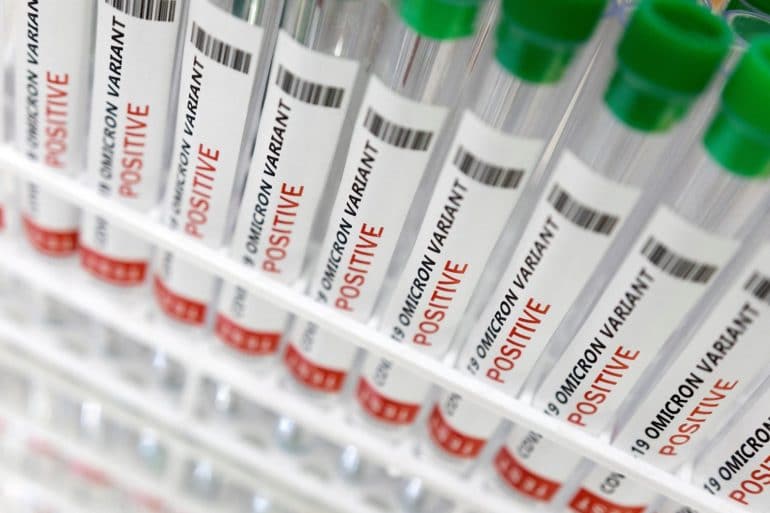"Antibodies after Omicron disease stay for weeks. "Antibodies stay for months after vaccination."
This was emphasized, among others, speaking to ERT by Panagis Galiatsatos - Pulmonologist, intensive care professor at Johns Hopkins University in Baltimore, USA.
"We continue to insist on vaccination," he said, at a time when the mildest disease it causes - at least so far - Omicron has given birth to new dangerous fashions with some seeking to catch the virus by attending even coronary parties.
"The Omicron strain is widespread in Baltimore and many people in the community get sick, but mostly those who are not vaccinated," he said.
90% of people in the ICU are not vaccinated
"In intensive care units, 90% of patients with Omicron are unvaccinated," he said. "In the hospital we are fighting to save lives."
"The choices and responsibilities we will now show will determine the extent of the pandemic and whether there will be other mutations in the virus. "In order to end the pandemic, there must be a high percentage of global vaccination coverage," said the professor.
"We have to get enough doses of vaccines to be able to keep it Covid-19 like a cold, "he said characteristically.
The dangerous theory
Mr. Galiatsatos's statements come in response to a very dangerous view that has recently developed, according to which the rapid spread of Omicron, which causes milder symptoms than previous variants, may η be the solution to the pandemic problem. .
Many vaccinators do not wonder if it is better to get sick in order to get the antibodies naturally.
However, like Mr. Galiatsatos, other scientists say this is not a good idea for many reasons.
"I've heard a lot of scary party stories where people are trying to get infected. "It's not safe at all," said Dr. Maria van Kerkave, technical director of the World Health Organization. Covid-19.
He pointed out that, although Omicron often does not cause serious symptoms, the likelihood of getting seriously ill is "real".
"If you have underlying diseases, you are old, if you have not been vaccinated, you may die," Kerkave said.
"I do not want to intimidate anyone, but the rumor that it is a common cold is not true. "The narrative that it is just mild does not stand," he warned.
Anecdotal reports from several countries show some trying to become infected in order to acquire natural immunity or to avoid being excluded from future manifestations.
Sweden has already taken steps to ban so-called coroner parties, locally reported on December 23rd. Deliberate infection is punishable by up to five years in prison.
Omicron may be milder, but it is so widespread that it can cause more serious cases in absolute numbers. Recent data from Italy and Germany show that those who are not vaccinated are much more likely to need treatment or to succumb to Omicron.
"I agree that sooner or later everyone will be exposed, but later it is better," virologist Michelle Nussenweig of Rockefeller University in New York told Reuters. "Why; "Because later we will have better and more widely available drugs and vaccines."
Danger to others
Even people who are slightly ill with Omicron can transmit the virus to vulnerable family members or their environment, said Akiko Iwasaki of Yale University.
"You can transmit the virus to someone more vulnerable," agreed Dr. Kerkove of the WHO.
The long-term effects of Omicron are unknown
Previous variants of the coronavirus are known to cause persistent severe symptoms, known as long Covid.
"We still do not have data on the rate of Omicron infections […] that will end up living with long Covid," said Dr. Yavasaki of Yale.
"People who underestimate Omicron as mildly put themselves at risk for a serious illness that can persist for months or years."
It is also unknown whether Omicron causes the "silent" symptoms reported by other strains, such as autoantibodies attacking healthy tissues, sperm problems and insulin-producing cells.
in.gr
